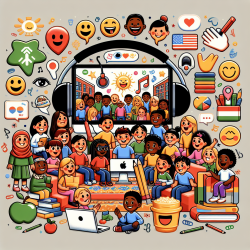As school counselors, you often find yourselves at the heart of a complex and demanding process: the Individualized Education Program (IEP) planning and meetings. These meetings are crucial for the development and success of children with special needs, yet they can often leave you feeling lost and overwhelmed. With the right strategies and tools, however, you can navigate these waters with confidence and efficacy. TinyEYE is here to provide you with essential tips and insights to master IEP planning and meetings, ensuring that every child's unique needs are met effectively.
Understanding the Basics of IEP
An IEP is a legally binding document that outlines the educational plan for a child with disabilities. It includes specific goals, services, accommodations, and the criteria for measuring progress. Understanding the components of an IEP is the first step toward effective planning and execution. Here are the key elements:
- Present Levels of Academic Achievement and Functional Performance (PLAAFP): This section describes the child's current abilities and challenges.
- Measurable Annual Goals: These are specific, measurable objectives that the child is expected to achieve within a year.
- Special Education and Related Services: This includes the types of services the child will receive, such as speech therapy, occupational therapy, or counseling.
- Accommodations and Modifications: These are changes to the learning environment or curriculum that help the child succeed.
- Progress Monitoring: This outlines how the child's progress will be tracked and reported.
Effective IEP Planning
Effective IEP planning requires thorough preparation and collaboration. Here are some steps to ensure a smooth planning process:
- Gather Comprehensive Data: Collect information from various sources, including teachers, parents, and previous assessments, to create a complete picture of the child's needs.
- Set Realistic and Achievable Goals: Goals should be specific, measurable, attainable, relevant, and time-bound (SMART). This ensures that progress can be accurately tracked.
- Involve Parents and Guardians: Parents and guardians provide invaluable insights and should be active participants in the planning process.
- Collaborate with Other Professionals: Work closely with teachers, therapists, and other specialists to develop a comprehensive and cohesive plan.
Conducting Effective IEP Meetings
IEP meetings are a collaborative effort that brings together educators, parents, and specialists to discuss and finalize the child's educational plan. Here are some tips for conducting effective IEP meetings:
- Prepare in Advance: Review all relevant documents and data before the meeting to ensure you are well-informed and ready to contribute.
- Create a Positive Atmosphere: Foster an environment of mutual respect and collaboration. Ensure that all participants feel heard and valued.
- Stay Focused: Keep the meeting focused on the child's needs and goals. Avoid getting sidetracked by unrelated issues.
- Encourage Open Communication: Allow all participants to share their perspectives and concerns. This helps to build a comprehensive and effective IEP.
- Document Everything: Take detailed notes during the meeting to ensure that all decisions and actions are accurately recorded.
Leveraging Online Therapy Services
Online therapy services, like those provided by TinyEYE, can be a valuable resource in the IEP process. These services offer flexible and accessible support for children with special needs. Here are some benefits of incorporating online therapy into your IEP planning:
- Accessibility: Online therapy can be accessed from anywhere, making it easier for children in remote or underserved areas to receive the support they need.
- Flexibility: Sessions can be scheduled at convenient times, reducing disruptions to the child's regular school routine.
- Specialized Support: Online therapy services often provide access to specialists who may not be available locally.
- Data-Driven Insights: Many online therapy platforms offer tools for tracking progress and generating reports, which can be invaluable for IEP planning and monitoring.
Conclusion
IEP planning and meetings are critical components of ensuring that children with special needs receive the education and support they deserve. By understanding the basics of IEPs, preparing thoroughly, fostering collaboration, and leveraging online therapy services, school counselors can navigate this complex process with confidence and efficacy. TinyEYE is committed to supporting you in this journey, providing the tools and resources you need to create effective and individualized education plans for every child.
Remember, the goal of an IEP is to provide a roadmap for the child's success. With careful planning and collaboration, you can help each child reach their full potential.










